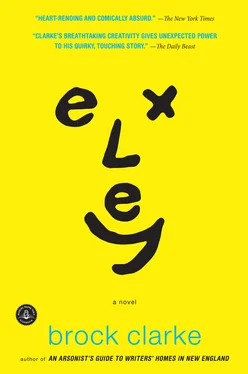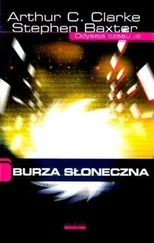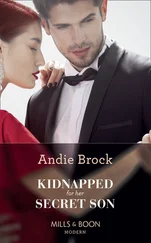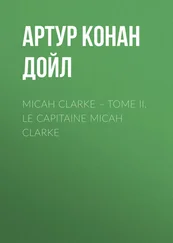Yardley nodded. “‘The world of men rather than that of women and children was his true métier, but he tried to be a good father.’”
“You two goofies shut up, would cha?” Exley said. But there was laughter in his voice. He held the book over his face, and I could see that it, and Exley’s chest, were shaking a little. I looked at Yardley. His mouth wasn’t so grim and skeptical now. He seemed happy that we’d made Exley laugh.
“‘Fred Exley and I never met,’” Yardley explained to me, “‘and I would not claim to have been his “friend” in the customary sense of the word, yet we were friendly in a way and touched each other’s lives as well.’”
“Well,” I said, “now you’ve met, right?”
Yardley’s face got grim again, and dark, even darker than the apartment. “‘The question,’” he said, “‘has only one conclusive answer.’ We need to go to Brookside Cemetery.”
“Brookside?” I said, like I’d never heard of it before. But I had: I remembered that Yardley said in his book that Exley was buried there. I looked at Exley to see if he was thinking what I was thinking, but he was still looking at his book, not at me. My heart was turning in my chest, like a stomach does when it’s hungry. I was sure Yardley could hear it. “Never heard of the place,” I said.
Exley suddenly threw his book to the floor, pushed himself off the couch, and lurched toward us. Yardley tried to take a step back, but Exley caught him before he did. He put his hands on Yardley’s shoulders and leaned into him. Their noses were almost touching. Exley looked Yardley right in the eyes this time and said, “‘If it will allay the ache in your heart,’ then let’s go.”
EXLEY INSISTED HE be the one who drove Yardley’s Volvo, and Yardley let him. Yardley sat in the front passenger’s seat. I had the back. Exley lit a cigarette without asking if it was OK or opening the window. He turned the key, started the car, and put it in drive, went west on the Public Square, then south on Washington. It had snowed overnight but wasn’t snowing now. The road was clear and dry enough. Still, Exley was barely moving. Cars were screeching past and beeping at us and flipping us off.
“What’s going on?” I said.
Yardley turned around and whispered, “‘He drives in the lifelong drunk’s manner: very, very slowly.’”
I tried to catch Exley’s eyes in the mirror, but he was looking straight ahead. We crept past the YMCA. The skinny, wolfish guys were already outside smoking their cigarettes in their shirtsleeves. “‘The YMCA,’” Yardley said and pointed at it. “‘Where students played billiards and table tennis, or read books and magazines in the big lobby with soft comfortable chairs.’” We kept going south, past the library, the historical society, the hospitals, then to the middle and high schools. “That’s my school,” I said to Yardley. Yardley nodded and said, “‘The 1940s were a bright period in the school’s history. Spirit was high, inflated if anything by wartime patriotism. Dress was neat and manners were good.’” He looked back at me, at my wrinkled clothes, the clothes I’d slept in, and frowned. “‘The teachers were the law. Boys and girls gathered in the auditorium, where they talked quietly, perhaps kissed chastely.’”
“I have this teacher,” I said, “Mrs. T.”
But Yardley wasn’t listening. He was looking at the open space between the school buildings. It was just lawn. It wasn’t a sports field or anything. But Yardley said, “‘Football games were important events that brought the entire school together, from the pregame pep rallies with bonfires and cheers to the postgame parties.’”
“They lit fires?” I said. Our pep rallies now meant that one Friday in September, everyone who wasn’t a football player sat in the bleachers in the gym while Coach B., who was also the football coach, spoke too loudly into the microphone about what a great group of guys he had playing for him this year. Then he’d introduce the guys and pronounce most of their names wrong. “In the gym?”
“No, not in the gym,” Yardley said.
“But where?” I said. I wasn’t being a wise guy. I really wanted to know. “Did you have bonfires during pep rallies at your school?” I asked.
“‘I prefer to keep myself out of what is, after all, his biography and not mine,’” Yardley said. We didn’t talk after that. Exley picked up a little steam as we went up the big Washington Street hill, then left on Route 67. We were getting close, and I started feeling nervous again. A few seconds later, Exley took a right and passed between the stone pillars and under the big metal arch that read BROOKSIDE CEMETERY. We bumped along slowly. Yardley didn’t tell Exley where to go, and Exley didn’t seem to need directions. He turned this way, then that, all on his own. Something started falling from the sky that wasn’t quite rain, wasn’t quite snow. It was cemetery weather. The sky was so low it seemed the taller trees — the pointy pines, the mighty oaks — might punch right through it. I looked at Exley’s face in the rearview. He looked calm, in control, as he smoked his cigarette and squinted out the windshield at the gravestones on our right. If ever there was a picture of a man on the way to see his own grave, this wasn’t it.
“Here we go,” Exley said, and stopped the car. No one said anything or made a move for a second, then another. Yardley was looking out his window. “‘He had originally specified that he be cremated and his ashes “dropped in the Lost Channel of the St. Lawrence River,”’” he said, making air quotes here to let us know he was acknowledging his sources, “‘but in the fall of 1991 he changed his mind and asked to be buried next to his father and mother in Watertown.’” He looked at Exley, then at me. He looked like the minister in the Public Square, when he was about to lay to rest the dead soldier. “‘This was done,’” he said. He opened his door, got out, and started walking. I opened my door, got out, and followed. The snow was about a half-foot deep, and Yardley didn’t have gloves, but he bent over and started brushing snow off something. Gravestones, I guessed. I came up and stood next to him. This is what I saw:
EXLEY
CHARLOTTE M EARL E
1906–1989 1906–1946
To the left of that was more snow. And then farther to the left I saw this:
FRED HUNTINGDON
JENNINGS
1879–1946
“He was buried here,” Yardley said. “I saw the gravestone.”
“Huh,” I said through my hands. I’d put them over my mouth so that Yardley couldn’t see I was smiling. “Maybe you got confused.”
“Confused,” Yardley said.
“Because the guy buried here is named Fred, too,” I said.
“I’m not confused about anything,” Yardley said. He got down on his knees and started digging in the snow with his hands, in the space between Exley’s parents’ stone and this Jennings guy’s stone. I looked back at the car. Exley was still in the driver’s seat, smoking another cigarette. “Look, you can see where his stone was,” Yardley said. I turned back to him. He’d dug all the way through the snow to the ground. True, the ground was a little chewed up, a bit more dirt than grass and some small rocks scattered around. But this was November in Watertown. This was just the way the earth looked this time of year; it would look that way until May. The spot he was pointing at didn’t look much different than any other patch of earth in Watertown or in the cemetery itself. It just didn’t.
“I’m sorry,” I said. “I don’t see it.”
“This is insane ,” Yardley said. It was weird. Yardley didn’t sound mad, not exactly. He sounded amazed, like he couldn’t believe what he was seeing or saying. In his book, Yardley had written that he “shared Exley’s ardor for professional football and, in those younger and stronger days, for distilled spirits.” He looked like he could have used some distilled spirits right about now. “You moved the headstone ,” he told me.
Читать дальше












